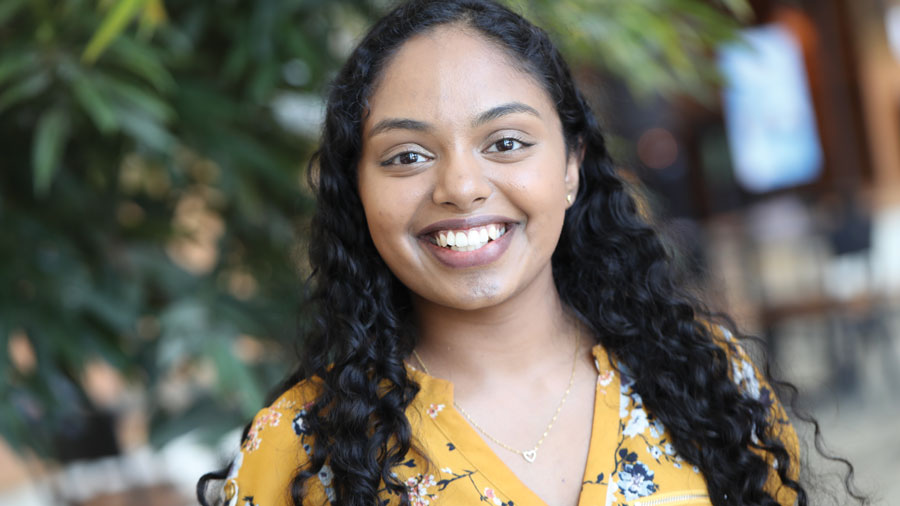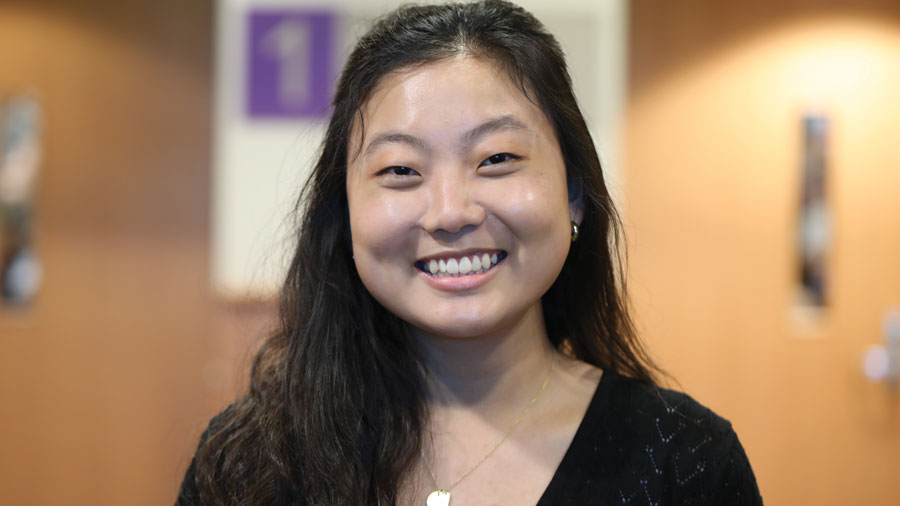Physician, Heal Thyself
Since Baylor students began attending classes in 1846, the University has required that they spend time on campus attending Chapel. While the frequency, length and format of those Chapel sessions have changed many times over the years, the goal remains the same: to provide Baylor students with experiences where they can reflect on their role as spiritual beings who are being equipped for worldwide service.
Out of necessity, Baylor Chapel services have historically had to be somewhat broad in their topical appeal since the auditorium-sized audiences contained students from a variety of backgrounds with a wide range of instructional plans and career goals. But over the past decade, the University began offering its students alternate ways to fulfill their Chapel requirement — including chances to explore common interests in small group settings.
One of the newest Baylor Chapel alternatives — titled “Faith in the Healing Professions” — is encouraging groups of between 50 and 75 prehealth students each semester to better prepare for their careers. They do this by examining issues they will face on the job as they wrestle with medical ethics, interact with patients and families and overcome their own spiritual challenges.
Filling a Need
Before his retirement, medical doctor Bill Neilson taught health-related classes as a senior lecturer and clinical professor in Baylor’s Honors College. One class he taught for the medical humanities program in the College of Arts & Sciences was called “Medicine, Meaning and the Physician-Patient Relationship.” As he was teaching, Dr. Neilson realized that prehealth students should have more opportunities to examine the more personal aspects of the profession.
“In the first five years I was at Baylor, I had four previous colleagues in healthcare commit suicide. And it turns out that there in fact is an epidemic of suicides among practicing physicians, as well as a public health crisis, due to widespread physician burnout,” Neilson said. “We’re preparing an enormous number of young people here to practice medicine or be in healthcare in some fashion. So I thought, what can we do to give them the necessary skills to be able to practice successfully while also maintaining their own emotional and spiritual anchoring?”
“When you’re in medical school or residency, nobody talks to you about ethics to speak of. Nobody talks to you about the emotional impact of what you are doing to yourself or your family, and not much is said about the patient’s experience. That’s why we want to give our students at Baylor more resilience, as well as a way to understand their roles in the bigger picture, and teach them that they can rely on God to encourage them when things are really difficult.”Dr. Bill Neilson
From experience, Neilson knew that medical and other professional schools don’t have much time available to teach personal lessons such as these.
“When you’re in medical school or residency, nobody talks to you about ethics to speak of. You’re supposed to just get it out of the air or something,” he said. “Nobody talks to you about the emotional impact of what you are doing to yourself or your family, and not much is said about the patient’s experience. That’s why we want to give our students at Baylor more resilience, as well as a way to understand their roles in the bigger picture, and teach them that they can rely on God to encourage them when things are really difficult.”
Neilson discussed these ideas with Dr. Burt Burleson, University Chaplain, Dr. Rich Sanker, senior director of prehealth programs and undergraduate research in the College of Arts & Sciences, Dr. James Marsh, dean for student health and wellness and executive director for counseling services, and Dr. Bill Hoy, clinical professor of medical humanities. The conversation provided the inspiration for the debut of the first healthcare-related Chapel alternative in the Fall 2019 semester.
“When I told Dr. Sanker that we could offer a healthcare-related Chapel alternative, it was like I told a six-year-old that he could go to Disneyland,” Burleson said.
“I was excited,” Sanker said. “This was a fantastic opportunity to engage our students to explore and encourage their faith and help them realize what their faith means to their future delivery of healthcare.”
Opening Up
Each section of “Faith in the Healing Professions” meets twice a week for one semester. In the Monday sessions, students listen to guest speakers that have included Baylor alumni now working in health professions, faculty from other Baylor academic units such as the Louise Herrington School of Nursing and the Department of Communication Science & Disorders, faculty at various medical schools, and local healthcare providers, including doctors from Waco Family Medicine. Lecture topics during the latest semester included “What is Healing?,” “Suffering and Evil,” “Grief — Theirs and Mine,” “Healthcare and Justice,” “Ethical Crises to Come” and “Being Grateful.”
During the Chapel sessions that follow each week on Wednesdays, students break into small groups and discuss in more depth the topics addressed by the speaker earlier in the week. These small group discussions are led by upperclassmen majoring in health-related fields, such as Parker Hoffman, a senior majoring in cellular and molecular biology.
“Once we got a few weeks into the curriculum, the students in my small group started to open up and become more vocal,” Hoffman said. “They were willing to become vulnerable and talk about the topics, even those that are harder to open up about, such as death and dying, grief and bereavement. Those were things that some of them never had the chance to interact with intellectually.”
“It’s important that freshmen are taught from the beginning how to think about critical things they’ll have to encounter in their careers, such as handling personal relationships, the ethics behind being a doctor, and what brings them to this journey.”Trisha Venkat
Another small group leader, Trisha Venkat, a senior biochemistry major, said the Chapel alternative was just one way for her to add value to Baylor’s prehealth curriculum.
“It’s important that freshmen are taught from the beginning how to think about critical things they’ll have to encounter in their careers, such as handling personal relationships, the ethics behind being a doctor, and what brings them to this journey,” Venkat said. “Being a physician is a service job, and I wanted to help other students get in touch with the ethics, morals, values and dilemmas we will one day have to face.”
The success of the early healthcare Chapel sessions quickly led to a partnership with Baylor’s Science and Health Living Learning Center (LLC), made up of prehealth students living and studying together in the Hallie Earle residence hall in East Village. Many of the residents opted to take the new Chapel.
Michelle Diaz, director of the Science & Health LLC, said the small group approach has been beneficial.
“Our students taking part in Chapel tend to be more open with their group leaders, and the leader can then get a better sense of where the students are in their journey since they’re more willing to share” she said.
A Positive Legacy
Everyone involved with “Faith and the Healing Professions” is pleased about the effect it’s had in such a short period of time.
Joy Han, a junior biology major, said attending the very first healthcare Chapel in the fall of 2019 as a freshman helped her spiritually.
“The reason why I want to become a physician is connected to my Christian faith, and I think Chapel solidified how my faith plays a role in becoming a physician,” she said.
“The reason why I want to become a physician is connected to my Christian faith. Chapel solidified how my faith plays a role in becoming a physician.”Joy Han
“One of the great benefits which I didn’t imagine when we created this Chapel was how it’s drawn our students together,” Sanker said. “The prehealth world can be very intense and competitive for students, but this Chapel is turning our prehealth community into something more positive where the students see each other as companions. It’s allowed them to come together and share who they are, what their faith systems are and what their relationship with God and each other is.”
Burleson said the Chapel sessions have taught students that their work and their spiritual life don’t have to be separate.
“This gets them started off on a congenial foot, and they learn they can have a theology that forms their vocation,” he said. “It’s not as though they have to place church in one place, their work in another place and their personal life in still another. They can all come together.”

